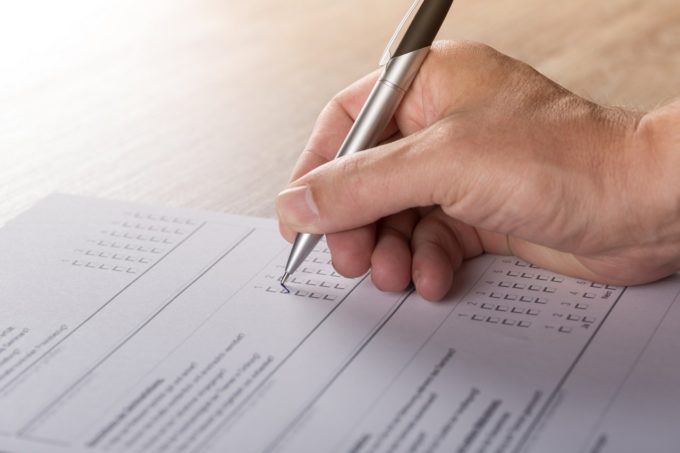
EPIC v. PACEI: President Trump’s Election Commission Asks States to Wait to Disclose Voter Data in Response to Flood of Lawsuits
By Sarah Vasquez Lightstone – Edited by Felicia Chen
Complaint for Injunctive Relief, Electronic Privacy Information Center v. Presidential Advisory Commission on Election Integrity, No. 17-1320 (D.D.C. July 3, 2017), complaint hosted by EPIC.org
This week President Trump’s Advisory Commission on Election Integrity temporarily halted its efforts to collect sensitive voter information from states until a federal judge ruled on a complaint filed against the Commission by Electronic Privacy Information Center (EPIC) over the data collection. In the complaint, EPIC asked U.S. District Judge Colleen Kollar-Kotelly to block the Commission’s data request via a temporary restraining order, arguing primarily that the Commission had not conducted the full privacy impact statement required by federal law for new government electronic data-collection systems.
The Presidential Advisory Commission on Election Integrity was established via Executive Order in May. President Trump’s decision to create the Commission came after his claims of widespread voter fraud in the 2016 election, despite general consensus among election officials that voter fraud is a non-issue in the United States.
The current controversy began last month when the Commission, headed by Vice President Mike Pence as chair, and Kansas Secretary of State Kris Kobach as vice chair, asked states to provide public data on nearly 200 million registered voters. The requested data included personal identifying information such as partial Social Security numbers, addresses, military statuses, political party registrations, and felony records. The stated goal of the request was to begin the process of reviewing the integrity of the federal elections processes including uncovering any illegal voters.
The request raised immediate concerns over the processes of collecting and storing such sensitive data by the federal government. This prompted a flood of lawsuits by groups including the American Civil Liberties Union, the Lawyers’ Committee for Civil Rights Under Law, Public Citizen, and the Electronic Privacy Information Center. In addition, in the three days following the release of the Commission Letter, election officials in twenty-four states said that they would oppose, partially or fully, the demand for personal voter data.
The various organizations' complaints focus on a range of arguments from statutory to constitutional. The EPIC lawsuit in particular alleges the Commission’s intent to collect the personal data of millions of registered voters and to publish partial Social Security numbers is an unconstitutional invasion of privacy and a violation of the agency’s obligation to conduct a Privacy Impact Assessment (“PIA”). EPIC contends that the Commission failed to complete a PIA before initiating the collection of certain sensitive information, which is required under the E-Government Act of 2002 for certain agencies. EPIC also asserts that the Commission failed to issue a Federal Advisory Committee Act notice and violated the constitutional right to information privacy for millions of Americans by “seeking to assemble an unnecessary and excessive federal database of sensitive voter data from state records systems.”
This week in response to the EPIC lawsuit and prior questioning by the federal judge doubting their position, the Commission announced it would alter how it plans to collect and store state voter information and asked states to halt sharing until a ruling by the judge. In its reply brief filed this week, the government argued that EPIC lacks standing to bring suit, that the Commission is not subject to the E-Government Act, and that public interest weighs against injunctive relief. In addition, Charles Christopher Herndon, the director of White House Information Technology, laid out a new plan for how the Commission now plans to collect and store data in response to concerns that the government believes resolves some of the allegations raised in EPIC’s complaint.
Underlying EPIC's legal arguments are much deeper fears that the Commission will use its powers to suppress votes and target minorities. The New York Times reports that voting rights advocates and some scholars have concerns that the Commission may want to build a case for stricter requirements for registering to vote and casting ballots. Meanwhile the editorial board of the Washington Post expressed concerns that the Commission itself was not the impartial and bi-partisan body that it should be to investigate voter fraud.
Nevertheless, the Commission has forged ahead, holding its first meeting on Wednesday, July 19 where President Trump reaffirmed his belief that there is widespread voter fraud. Whether the Commission is able to obtain the data it seeks and what becomes of it remains a battle to be decided in court.